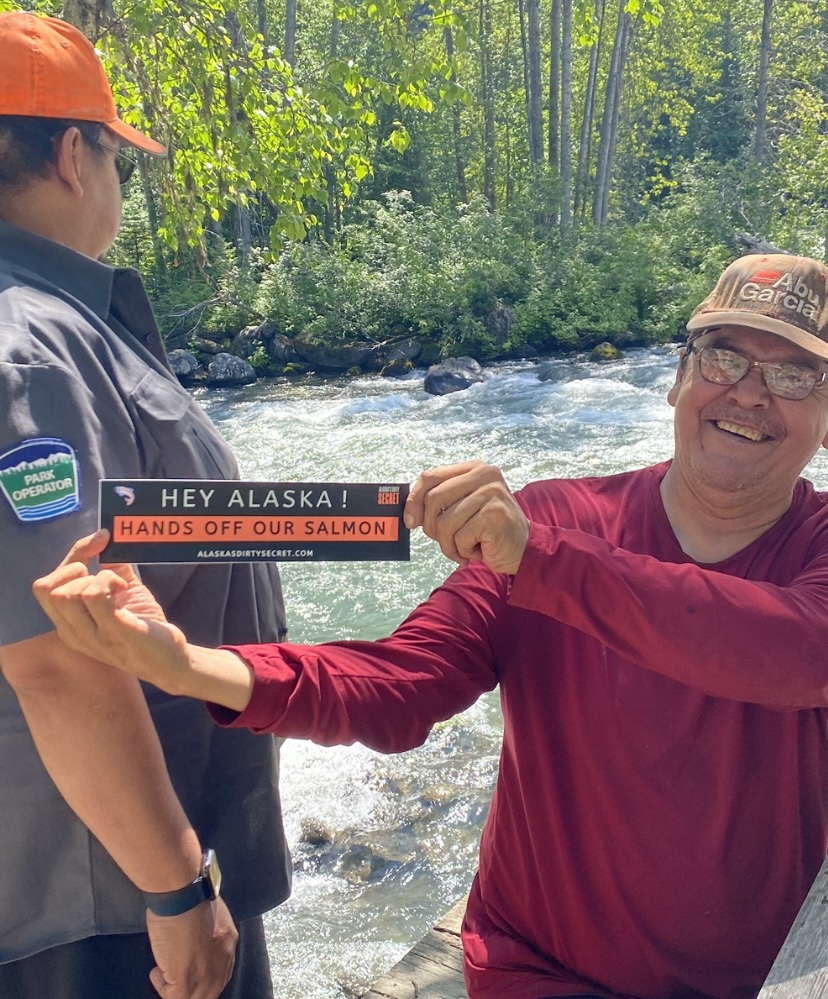Marine Stewardship Council to review Canadian conservation groups’ objections to Alaskan salmon “sustainable” certification
An independent adjudicator has accepted the formal objection of three B.C.-based conservation organizations to the certification of Alaskan salmon as “sustainable” by the UK-based Marine Stewardship Council.
This means the objection filed earlier this month by SkeenaWild Conservation Trust, Raincoast Conservation Foundation and Watershed Watch Salmon Society will proceed through MSC’s independent adjudication process and could thwart Alaska’s efforts to retain the MSC certification.
Southeast Alaska’s non-selective fisheries have devasting impacts on salmon and steelhead.
“The decision to accept the notice of objection signals an acknowledgement that there may be flaws in the assessment of Alaska’s salmon fishery,” says Misty MacDuffee, wild salmon program director at Raincoast Conservation Foundation.
Alaskan salmon has been sold with the MSC blue check labeling it a “sustainable” seafood since 2000. The current certification expires in May and a third-party assessment has recommended MSC re-certify the fishery.
“Our groups oppose re-certification due to the devastating impact Southeast Alaska’s non-selective fisheries have on salmon and steelhead populations all along the Pacific Coast. These fleets disproportionately intercept millions of salmon and steelhead bound for B.C., Washington and Oregon. They also fail to adequately track and report bycatch,” says Greg Knox, executive director of SkeenaWild Conservation Trust.
Alaska is catching the lion’s share, while Canadian fisheries are tied to the dock.
In fact, Alaskan fisheries near the B.C. border have been harvesting an increasing proportion of the total catch of B.C. salmon and now harvest the lion’s share, as Canadian fisheries have been curtailed to protect at-risk populations.
The Southeast Alaska chinook fishery, 90 per cent of which does not originate in Alaska, also deprives endangered Southern Resident orcas of their primary food source — a violation of the U.S. Endangered Species Act and the National Environmental Policy Act.
The decision by MSC was welcomed by Greg Taylor, a former Canadian seafood industry executive and fisheries consultant.
“MSC already refuses to certify some Alaskan salmon fisheries because it does not consider them ‘sustainable’. It is time MSC adds Southeast Alaskan salmon fisheries to this list,” Taylor says. “Failing to do so erodes consumers’ confidence in MSC certifications and Alaskan claims that its salmon is harvested in sustainable fisheries.”
The independent adjudicator has also accepted an objection filed by the UK-based Royal Society for the Protection of Birds over the gillnet bycatch of seabirds, in particular, the globally endangered marbled murrelet.
End the greenwashing of Alaska’s unsustainable interception fisheries.
Though there have been previous objections to MSC certification of Alaskan fisheries, this is the first time an independent adjudicator has accepted any in relation to the Alaskan salmon fishery.
The assessment will now undergo an independent review.
“Our goal here is to end the greenwashing of Alaska’s unsustainable interception fisheries,” says Aaron Hill, executive director at Watershed Watch Salmon Society. “We want to see their commercial fleet adopt international best practices and reduce their massive impacts on endangered Pacific salmon and wildlife populations.”
Contacts:
Greg Knox, Executive Director, SkeenaWild Conservation Trust
[email protected]
1-250-615-1990
Misty MacDuffee, Wild Salmon Program Director, Raincoast Conservation Foundation
1-250-818-2136
Aaron Hill, Executive Director, Watershed Watch Salmon Society
1-250-818-0054
Follow us on social media to get the latest information

